UK banning fossil-fuel powered cars: The United Kingdom will be banning the sale of vehicles powered by gasoline and diesel by 2040, and would like to see all them off their roads by 2050. The UK 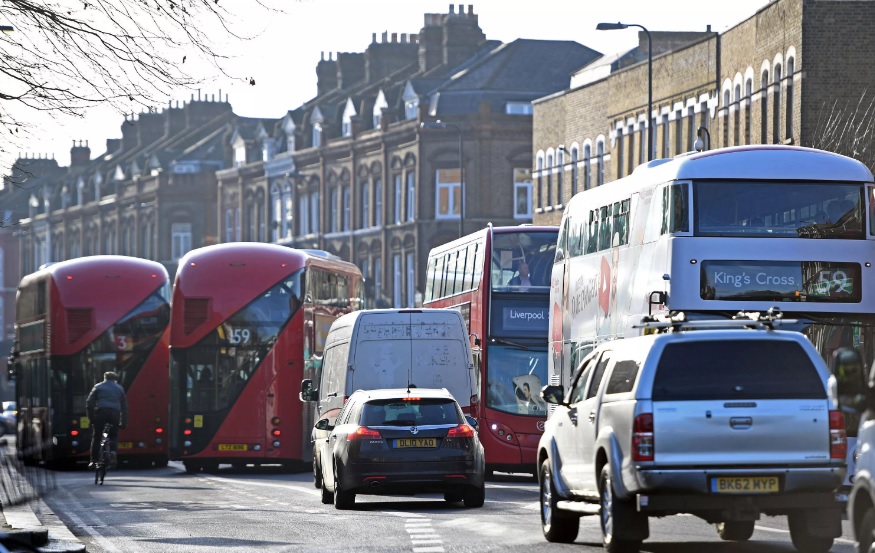 follows France, which decided to ban all fossil-fuel powered vehicles by 2040. The mayors of London, Paris, Madrid, Mexico City, and Athens are developing their own policies for clean air and climate change, would like to ban diesel vehicles. The British government has faced legal pressure from a series of lawsuits, and the national government has been taking steps to scrap diesel-powered cars. Nearly 200 million pounds (about $261 million) will go to local governments in the UK to help them restrict access by diesel-powered vehicles to extremely polluted roads. Battery electric vehicles will probably be the route chosen by the national government to replace gasoline and diesel powered cars.
follows France, which decided to ban all fossil-fuel powered vehicles by 2040. The mayors of London, Paris, Madrid, Mexico City, and Athens are developing their own policies for clean air and climate change, would like to ban diesel vehicles. The British government has faced legal pressure from a series of lawsuits, and the national government has been taking steps to scrap diesel-powered cars. Nearly 200 million pounds (about $261 million) will go to local governments in the UK to help them restrict access by diesel-powered vehicles to extremely polluted roads. Battery electric vehicles will probably be the route chosen by the national government to replace gasoline and diesel powered cars.
M-B motorsports joining Formula E: Mercedes-Benz will be joining ranks with other automakers by competing in the Formula E electric racing series starting in the 2019-2020 racing season. In 2018, the automaker’s motorsports division will finish its long-term involvement with German racing series Deutsche Tourenwagen Masters (DTM) to focus on Formula E. The company has been committed to racing and transitioning over to eco-friendly vehicles in recent years, including winning championships with its hybrid technology in the Formula One series. Mercedes-Benz will becomes the ninth auto manufacturer to join the series. Other automakers include Audi, BMW, Citroen DS, Jaguar, Mahindra, Renault, and electric carmaker startups Nio and Faraday Future.
Get ready for AltCar Expo: The AltCar Expo & Conference, now in its 12th year, will be taking place in Santa Monica, Calif., on Sept. 15-16, 2017. The free admission two-day event features a series of  speaker panels on pressing topics for fleets, government officials, vehicle manufacturers, technology companies, and enthusiasts interested in the issues and trying out the vehicles. AltCar Expo offers the best Ride & Drive out there, with several green cars to drive and a few commercial fleet vehicles to see. With the Trump administration deciding to exit the Paris climate accord, leaders are looking for other channels to address the issues; that includes the role California is playing.
speaker panels on pressing topics for fleets, government officials, vehicle manufacturers, technology companies, and enthusiasts interested in the issues and trying out the vehicles. AltCar Expo offers the best Ride & Drive out there, with several green cars to drive and a few commercial fleet vehicles to see. With the Trump administration deciding to exit the Paris climate accord, leaders are looking for other channels to address the issues; that includes the role California is playing.
“AltCar Expo was created to provide a forum for both industry and the general public to learn about existing alternatives to the way they use energy and transportation,” said Christine Dzilvelis, Organizing Partner of AltCar Expo. “Today, 52 percent of all Zero Emission Vehicle (ZEV) purchases are happening in California, and our state continues to lead the nation as it relates to clean energy policies that are driving national and global change. Our intention is for California to continue to lead in this area, and AltCar offers a venue to generate awareness about existing and future technologies and encourage their use.”

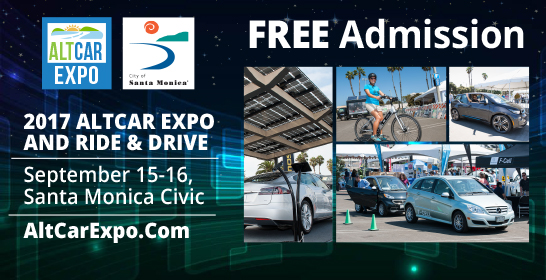
 reported Friday. The other five would be the Buick LaCrosse, Cadillac CT6, Cadillac XTS, Chevrolet Impala, and Chevrolet Sonic. GM declined to comment. Pressure from shareholders to increase sales may have GM tipping more to pickups, crossovers, and SUVs. It would be a shame to see, with the redesigned Volt doing well in sales – No. 3, close behind the Tesla Model S in the first six months of U.S. sales.
reported Friday. The other five would be the Buick LaCrosse, Cadillac CT6, Cadillac XTS, Chevrolet Impala, and Chevrolet Sonic. GM declined to comment. Pressure from shareholders to increase sales may have GM tipping more to pickups, crossovers, and SUVs. It would be a shame to see, with the redesigned Volt doing well in sales – No. 3, close behind the Tesla Model S in the first six months of U.S. sales.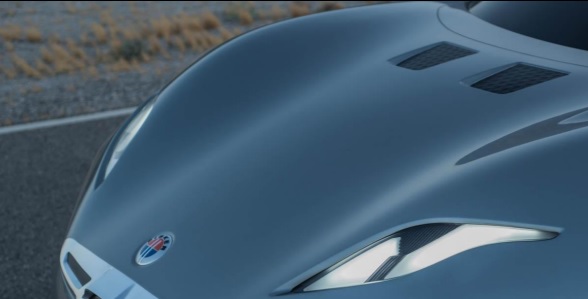 upcoming EMotion sporty, luxury sedan. The company would have had to focus entirely on Fisker and let other client projects slip away, which won’t work for the company to do, said Jack Kavanaugh, chairman and acting CEO of Nanotech Energy. That JV had started with the Henrik Fisker starting his new electric car company in October. The automaker will continue to “work with Nanotech on the applications of graphene,” but it will use battery cells provided by LG Chem for the EMotion, Fisker said.
upcoming EMotion sporty, luxury sedan. The company would have had to focus entirely on Fisker and let other client projects slip away, which won’t work for the company to do, said Jack Kavanaugh, chairman and acting CEO of Nanotech Energy. That JV had started with the Henrik Fisker starting his new electric car company in October. The automaker will continue to “work with Nanotech on the applications of graphene,” but it will use battery cells provided by LG Chem for the EMotion, Fisker said.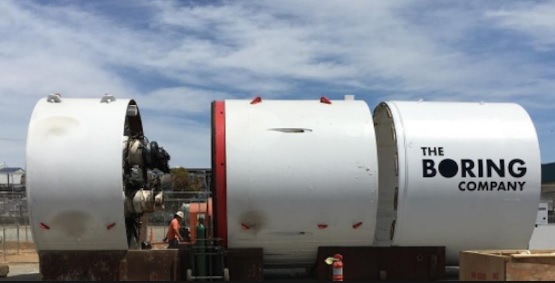 Washington, D.C. “Just received verbal govt approval for The Boring Company to build an underground NY-Phil-Balt-DC Hyperloop. NY-DC in 29 mins,” he tweeted yesterday. He later tweeted out that formal approval with the Trump administration is still needed, but after discussions they’ve had, he’s confident the project will be able to move forward. That could bring fast Hyperloop-like trains to Los Angeles and important transport routes on the east coast.
Washington, D.C. “Just received verbal govt approval for The Boring Company to build an underground NY-Phil-Balt-DC Hyperloop. NY-DC in 29 mins,” he tweeted yesterday. He later tweeted out that formal approval with the Trump administration is still needed, but after discussions they’ve had, he’s confident the project will be able to move forward. That could bring fast Hyperloop-like trains to Los Angeles and important transport routes on the east coast. Automobiles division is concerned that most U.S. consumers will be confused or concerned about having to charge for the first time and be subject to range anxiety. Plugging in is less of a worry in California, which has made up about half of U.S. plug-in vehicle sales. Still, it is possible to occasionally see Chrysler billboard ads in the state that only identify the Pacifica as a hybrid.
Automobiles division is concerned that most U.S. consumers will be confused or concerned about having to charge for the first time and be subject to range anxiety. Plugging in is less of a worry in California, which has made up about half of U.S. plug-in vehicle sales. Still, it is possible to occasionally see Chrysler billboard ads in the state that only identify the Pacifica as a hybrid.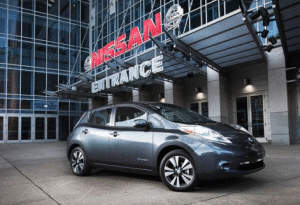 electric car. Flipping a switch turns the accelerator into an e-Pedal, where you get to accelerate, decelerate, and stop the car all on one pedal. That will include driving on hills, and will ease some of the burden of being stuck in traffic – with 90% of driving needs now being met on one pedal. The new feature comes from Nissan Intelligent Mobility, which is dedicated to transforming how cars driven, powered and integrated into society. More will be revealed on e-Pedal, along with several other interesting changes, during the new Leaf launch in September.
electric car. Flipping a switch turns the accelerator into an e-Pedal, where you get to accelerate, decelerate, and stop the car all on one pedal. That will include driving on hills, and will ease some of the burden of being stuck in traffic – with 90% of driving needs now being met on one pedal. The new feature comes from Nissan Intelligent Mobility, which is dedicated to transforming how cars driven, powered and integrated into society. More will be revealed on e-Pedal, along with several other interesting changes, during the new Leaf launch in September.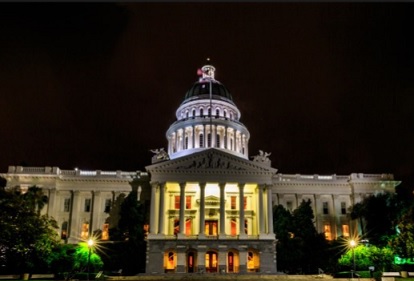 through when eight Republicans broke ranks and joined with Democrats to continue the program that came from AB 32; it requires companies to buy permits to release greenhouse gases into the atmosphere. Gov. Jerry Brown has been committed to adding the bullet train from Los Angeles to San Francisco, and bringing more electric vehicles and infrastructure to the state. Sources say there’s already more than $200 million available through the cap-and-trade auctions, now in their fifth year, that can go toward alternative fuels and infrastructure in the state.
through when eight Republicans broke ranks and joined with Democrats to continue the program that came from AB 32; it requires companies to buy permits to release greenhouse gases into the atmosphere. Gov. Jerry Brown has been committed to adding the bullet train from Los Angeles to San Francisco, and bringing more electric vehicles and infrastructure to the state. Sources say there’s already more than $200 million available through the cap-and-trade auctions, now in their fifth year, that can go toward alternative fuels and infrastructure in the state. renewables and energy storage are well positioned to continue seeing strong growth. State-level policies have been drivers and will continue. Renewable fuels are most vulnerable to Trump’s agenda. “With uncertainty looming and the administration continuing to consider oil-and gas-friendly policies, Trump’s decision to remove the renewable fuel obligation could alter a decade-old ethanol industry,” the report said.
renewables and energy storage are well positioned to continue seeing strong growth. State-level policies have been drivers and will continue. Renewable fuels are most vulnerable to Trump’s agenda. “With uncertainty looming and the administration continuing to consider oil-and gas-friendly policies, Trump’s decision to remove the renewable fuel obligation could alter a decade-old ethanol industry,” the report said.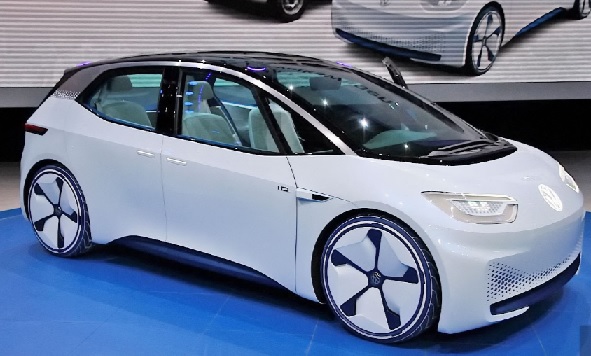 VW’s Chief of Corporate Strategy Thomas Sedran said in an interview with German site Automobil Produktion that the starting price for an ID will be down to $27,000 before incentives – $8,000 cheaper than the $35,000 Model 3. That will still take a while as the German automaker’s ID portfolio is still in the early development phase; it will take a few years for the first one to show up at dealerships.
VW’s Chief of Corporate Strategy Thomas Sedran said in an interview with German site Automobil Produktion that the starting price for an ID will be down to $27,000 before incentives – $8,000 cheaper than the $35,000 Model 3. That will still take a while as the German automaker’s ID portfolio is still in the early development phase; it will take a few years for the first one to show up at dealerships.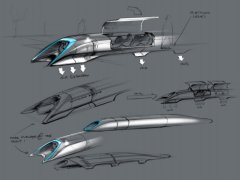 the next few weeks, the startup said. Inspired by Tesla CEO Elon Musk in 2013, Los Angeles-based Hyperloop One is ready to take the pod transport through vacuum tubes in what could someday be a very fast ride between San Francisco and LA. The goal is to reach 250 miles per hour, which would shorten the car trip quite a bit.
the next few weeks, the startup said. Inspired by Tesla CEO Elon Musk in 2013, Los Angeles-based Hyperloop One is ready to take the pod transport through vacuum tubes in what could someday be a very fast ride between San Francisco and LA. The goal is to reach 250 miles per hour, which would shorten the car trip quite a bit.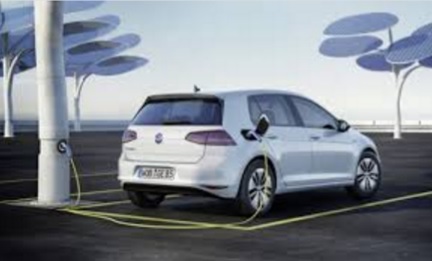 forecasting that electric cars will be reducing oil demand significantly by 2040. That comes from forecasts presented by OPEC, Exxon Mobil, and BP. OPEC quintupled its forecast for sales of plug-in sales, while Exxon Mobil, BP, and other oil producers also revised up their outlooks in the past year.
forecasting that electric cars will be reducing oil demand significantly by 2040. That comes from forecasts presented by OPEC, Exxon Mobil, and BP. OPEC quintupled its forecast for sales of plug-in sales, while Exxon Mobil, BP, and other oil producers also revised up their outlooks in the past year.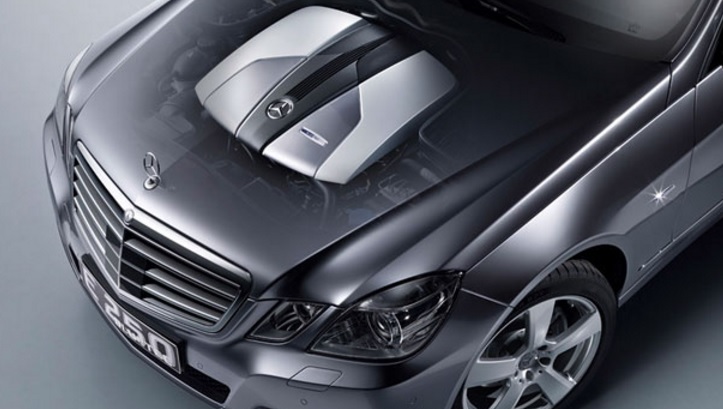 between 2008 and 2016 may have had emissions defeat devices, according to German newspaper Sueddeutsche Zeitung. In May, Daimler was subject to a search warrant granted by the District Court of Stuttgart that led to a raid and allegations made about the defeat devices. Engines used in the Mercedes C, E, G, R, ML, S, and CLS class models badged 320 and 350 Bluetec with 3.0-liter V6 engines are being investigated; Mercedes S 250 and E 300 Bluetec models in four-cylinder diesel 1.8 and 2.2 liter models; and diesel-powered Sprinter vans.
between 2008 and 2016 may have had emissions defeat devices, according to German newspaper Sueddeutsche Zeitung. In May, Daimler was subject to a search warrant granted by the District Court of Stuttgart that led to a raid and allegations made about the defeat devices. Engines used in the Mercedes C, E, G, R, ML, S, and CLS class models badged 320 and 350 Bluetec with 3.0-liter V6 engines are being investigated; Mercedes S 250 and E 300 Bluetec models in four-cylinder diesel 1.8 and 2.2 liter models; and diesel-powered Sprinter vans.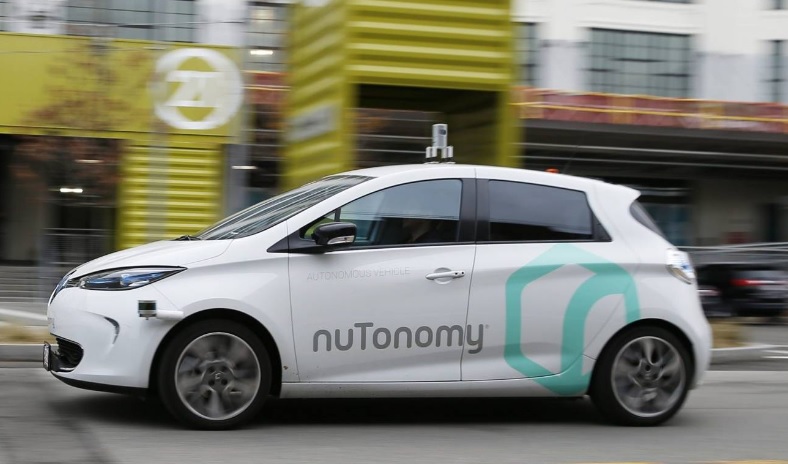 announcement to pull the U.S. out of the Paris climate agreement. It’s expected to reduce carbon emissions by at least five million tons by 2025. The electric cars will be powered by 100% renewable energy and it will all start with its nuTonomy vehicles coming out later this year in Boston. Lyft’s efforts will also be supported next year through a large test fleet of self-driving Chevy Bolts with its investor, General Motors. Lyft will be well positioned the three technologies that market analysts expect to shape the auto industry – electric, autonomous, and shared mobility services.
announcement to pull the U.S. out of the Paris climate agreement. It’s expected to reduce carbon emissions by at least five million tons by 2025. The electric cars will be powered by 100% renewable energy and it will all start with its nuTonomy vehicles coming out later this year in Boston. Lyft’s efforts will also be supported next year through a large test fleet of self-driving Chevy Bolts with its investor, General Motors. Lyft will be well positioned the three technologies that market analysts expect to shape the auto industry – electric, autonomous, and shared mobility services.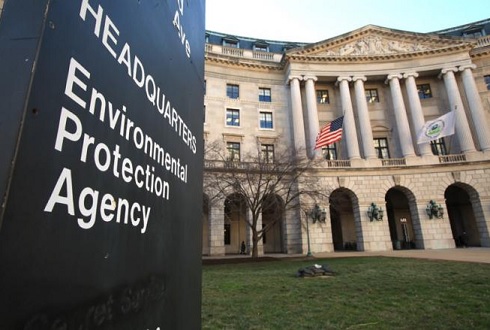 Automobiles was sued by EPA in May, accused of illegally using software to bypass emission controls in 104,000 diesel engine Ram pickups and Jeep Grand Cherokees sold since 2014. He doesn’t think the Obama administration was being too aggressive when taking action on emissions violations, and it’s the duty to EPA to enforce the rules. “Look what VW, and Fiat – you have this Fiat case that is on the horizon as well. The emails and the communications that I’m aware of – it was strategic and intentional and should be dealt with very aggressively,” Pruitt said.
Automobiles was sued by EPA in May, accused of illegally using software to bypass emission controls in 104,000 diesel engine Ram pickups and Jeep Grand Cherokees sold since 2014. He doesn’t think the Obama administration was being too aggressive when taking action on emissions violations, and it’s the duty to EPA to enforce the rules. “Look what VW, and Fiat – you have this Fiat case that is on the horizon as well. The emails and the communications that I’m aware of – it was strategic and intentional and should be dealt with very aggressively,” Pruitt said.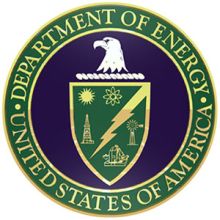 engine technologies, and energy efficient mobility systems. Mercedes Benz and General Motors are joining a long list of university research centers, including Lawrence Berkeley National Laboratory. Mercedes Benz is funding a project supporting solid state electrolyte membranes for high performance lithium-sulfur batteries; and GM is supporting research into pouch format cells for lithium-sulfur batteries to achieve high energy density and long cycle life.
engine technologies, and energy efficient mobility systems. Mercedes Benz and General Motors are joining a long list of university research centers, including Lawrence Berkeley National Laboratory. Mercedes Benz is funding a project supporting solid state electrolyte membranes for high performance lithium-sulfur batteries; and GM is supporting research into pouch format cells for lithium-sulfur batteries to achieve high energy density and long cycle life. model to roll off the production line. Tesla board member Ira Ehrenpreis had been the first make a down payment on the Model 3, but had turned over his rights to the first production model to Musk as a birthday gift. Musk, who turned 46, had previously purchased the very first Tesla Roadster and Model X, but not the Model S. The company is scheduled to deliver 30 of these units by the end of this month and aims to reach 20,000 units per month by December.
model to roll off the production line. Tesla board member Ira Ehrenpreis had been the first make a down payment on the Model 3, but had turned over his rights to the first production model to Musk as a birthday gift. Musk, who turned 46, had previously purchased the very first Tesla Roadster and Model X, but not the Model S. The company is scheduled to deliver 30 of these units by the end of this month and aims to reach 20,000 units per month by December.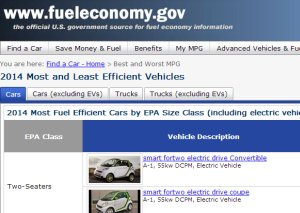 offers an effective policy solution that will increase adoption of PEVs. That will be the case whether implemented alone or with another policy such as government incentives, according to the study. The current standards determine an automaker’s compliance based on annual production volume-weighted average fuel economy of the automaker’s fleet of total vehicles manufactured. The Trump administration is expected to wait until the original deadline of April 2018 to finalize the second phase of rules through 2025; and will probably soften the standards. Selling much higher volumes of PEVs would resolve that problem; automakers will be motivated to build a wide selection of PEV models and market them effectively to hit federal targets, even if softened by the Trump administration.
offers an effective policy solution that will increase adoption of PEVs. That will be the case whether implemented alone or with another policy such as government incentives, according to the study. The current standards determine an automaker’s compliance based on annual production volume-weighted average fuel economy of the automaker’s fleet of total vehicles manufactured. The Trump administration is expected to wait until the original deadline of April 2018 to finalize the second phase of rules through 2025; and will probably soften the standards. Selling much higher volumes of PEVs would resolve that problem; automakers will be motivated to build a wide selection of PEV models and market them effectively to hit federal targets, even if softened by the Trump administration.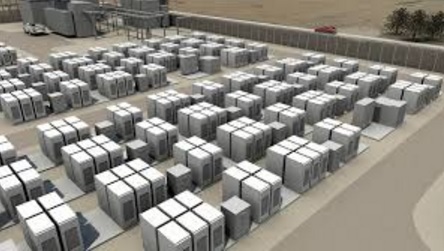 a tweet CEO Elon Musk made in March to back up South Australia with 100-megawatt-hour battery storage in 100 days or it would be free. That part of Australia has been devastated by power outages. It will be the largest lithium-ion battery storage project in the world, surpassing the second largest – an 80-MW facility in California – also supplied by Tesla Energy. Power will comes from a wind farm operated by France’s Neoen, and will be able to light up 30,000 homes in another blackout were to occur.
a tweet CEO Elon Musk made in March to back up South Australia with 100-megawatt-hour battery storage in 100 days or it would be free. That part of Australia has been devastated by power outages. It will be the largest lithium-ion battery storage project in the world, surpassing the second largest – an 80-MW facility in California – also supplied by Tesla Energy. Power will comes from a wind farm operated by France’s Neoen, and will be able to light up 30,000 homes in another blackout were to occur. House Budget for the next fiscal year wants to eliminate funds for Clean Cities as part of the proposed 73% cut to DOE’s overall Vehicle Technologies program. You can help save Clean Cities by adding your name to TEP’s national letter to the Congressional appropriations leaders. You’re also encourage to contact your Members of the House and Senate directly and urge them to protect funding for the DOE Clean Cities program.
House Budget for the next fiscal year wants to eliminate funds for Clean Cities as part of the proposed 73% cut to DOE’s overall Vehicle Technologies program. You can help save Clean Cities by adding your name to TEP’s national letter to the Congressional appropriations leaders. You’re also encourage to contact your Members of the House and Senate directly and urge them to protect funding for the DOE Clean Cities program.